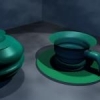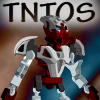-
Posts
2,863 -
Joined
-
Last visited
-
Days Won
1
Content Type
Profiles
Forums
Gallery
Events
Blogs
Store
Raffles
Blog Comments posted by Alex Humva
-
-
Does Skype actually work well on it?
Because the Skype app for Android is... less than great to say the least.
-
Hooray, my prophecy was not in vain, every blog post since then has been about it. Now I won't look silly.
Also wise words of wiseness.
-
What happens when a boy is actually a girl?
I respect people based on how they act. It's worked pretty well for me so far.
-
I'm going with DeeVee on this one, Thor is just too much of a looker to pass over.
-
I'm Alex Humva, and I support this message.
-
I'm glad I've fulfilled myself in your eyes. *tearyeyed*
But really, we're all silly buggers, the sooner we accept that the better.
-
Idunno, Cap just isn't that great. Maybe the new Spiderman...
-
I can very much get behind a Selina Kyle is hot movement.
-
It requires some prior knowledge. Long story short, the next big blog argument broke out in Kraggh/Kraghh's blog.
-
Well, Truman isn't president, so I sure don't know what's going on.
-
I have one or two opinions to inject. Firstly is the fact that I never saw fanservice as that much of a problem; what's the problem is when it's used gratuitously and doesn't benefit the story any. Really, if a crime fighter, be they male or female, wanted a versatile light weight crime fighting suit that didn't inhibit movement, I think yoga pants and a hoodie would be the way to go. This looks no where near as menacing or attractive, but it's surprisingly practical. Really, you can fight pretty good in them, I've had some heated polearm duels in that outfit.
Ahem, back to my point. I could care less about Black Widow's cleavage dip, which is more modest than a lot of clothes I see nowadays. I'm more wondering just how exactly she's so nimble in what appears to be skintight leather or spandex or some combination of the two. That's a lot more restrictive than it looks.
I suppose my TL;DR opinion would be; screw fanservice, I'm worried about how you're suppose to fight supervillians without ripping a seam somewhere.
Oh, right, I need to talk about empowerment somewhere. I'm a terrible person to speak on this, because I very rarely feel empowered by someone of either gender. The strong woman archetype... I don't know, I don't really care. Methinks the issue is that fiction makers think of women as women, rather than as people. I point to my favorite Star Trek captain, Captain Ben Sisko. While not a woman, he was the first black captain, and guess what, he was awesome. Why was he awesome? He did awesome things. And you know what? No one ever brought up his race. No one ever said "wow, the black guys doing this awesome stuff."
Compare to Captain Janeway, who the writers could barely go a week without saying "look guys, a woman, who's a captain! She's strong, she's awesome, and she's a woman!" This is the wrong way to go about it. Captain Sisko was the captain. He wasn't the black captain, he was the captain. He didn't feel the need to bring up his race, he didn't make snide racial jabs, he just did his job, and he did it awesomely. He was an awesome captain, not an awesome black captain. Janeway was always portrayed as the woman captain, not just the captain, and in my opinion that's where her character failed.
I'm hoping that somehow someone's going be able to figure out what I'm saying in my ramblings, but in case not, allow me to try to sum up. Fiction makers have the tendency to think of women or minority characters as women or minority characters, instead of just characters. Captain Sisko was written as a character; every now and then we'd have an episode of him making some old fashion Jamaican cooking. He didn't rub it in our faces, he didn't go "gee it's great to be black and Jamaican", he was just cooking his cultural food. Kinda like how future space Americans will no doubt cook hotdogs.
Characters have development and flaws and personality and background. So long as you write the character, and not, say, the female character or the black character it'll be fine. Unfortunately we get this state where authors, even some female authors, will write women who are archetypical, be it weak or strong, because that's how they think of them. Just look at Stephenie Meyer for proof of a female author that, ah, has some odd ideas about her own gender.
Second nonsensical and rambling opinion to inject, hopefully shorter this time. The whole male perspective female perspective thing stands true in a society such as ours, but I don't think the genders are doomed never to understand each other. Methinks it's more of a placebo than anything else; people don't try to look through the other's eyes because they don't think they can, or if they do they get a colored image of what they want to see/think they see. Idunno, could just be me. My friends of the opposite gender seem to think I have a pretty good grasp on it though, probably because of my somewhat odd outlook on life.
-
Hmm, sounds interesting. I'll have to try it sometime.
I have this amazing idea for something like this, but instead of boxes have growing tubes that twist and turn. I imagine it might be more difficult, but properly visualized and it could be amazing.
-
What script/function did you use to get that in perfect sync? I'm pretty sure you didn't do it by hand after all.

It's cool, don't get me wrong, I'd just like to know how to get stuff like that synced up with music

-
- Are you behind a proxy?
- Are you behind a firewall?
What ISP are you using?
What device are you using? (Laptop, smartphone, desktop, etc)
Did you do anything with your internet connection around the time it stopped connecting? - Are you behind a proxy?
-
Pretty underwhelming if you ask me; it barely dimmed any.
-
They're worth a read, but they're long. The shortest of the books is like 1.5 Return of the Kings. The entire series combined is several Bibles worth of words.
Some people are annoyed by the sheer amount of fluff and sideplots though. The final three books is basically the substitute author (the previous one died) desperately trying to tie up literally hundreds of subplots going on and still give a satisfying conclusion to the main plot.
It can be somewhat irritating after hearing a five page description of a cat.
-
I feel sad that A Memory of Light isn't on there. D:
I realize the Wheel of Time series is bloody long, but I figured it'd be pretty high up there, the conclusion to a pretty good series.
-
Cybernetic Alex Humva, on , said:
How was it? I want to move there in the future.
My advice is to move there in the present, as you do not have to first invent a time machine, which I have heard is quite difficult.
That is true, I could shave a significant portion of my moving budget if I forgo the Mercedes.
-
How was it? I want to move there in the future.
-
Have you ever seen the history of the COTRPGs? I've been trying to do some research to confirm my previous timeline, which if set to a 2SFH song and put with some anime slides, could be quite epic.
-
I believe some sort of widget on the front page would be best; be it a simple box filled with links to the recent closures, a twitter box, or whathaveyou. It'd let people see the progress being made whenever they see the latest news, which seems fitting.
-
I'm a big Leaguer.

-
The funny thing I find about suspension of disbelief is that the bigger lies are often easier to shallow. Take two examples from your rant essay for instance; Harry Potter and Iron Man 2. In Harry Potter you have a secret society of wizards, magic is everywhere, and we don't know it. It's completely crazy, but we accept it because it's a story, we're willing to suspend disbelief.
Then take Iron Man 2's cut scene of the jet flying into the upper atmosphere. The science behind that isn't quite right (to explain briefly, 'zero gravity' in space is infact not zero gravity but rather falling so fast that you outrace the curvature of the earth), but speaking from a technological point of view it is quite possible for that to happen. Admittedly, space planes aren't quite in style yet, and the design of the Stark Jet is an unlikely one for upper atmosphere travel, but ignoring the schematics it could work. Even as we speak private space companies are working on designs that could allow us to fly into space (or the upper atmosphere; space and the upper atmosphere kinda blend together. Long science-y explanation can be wiki'd) within the next five years.
Now, what's the difference between a scene that, while admittedly gets some details wrong but can be explained away with some tweaking, and a plot that involves wizards? Wizards are fanastic and not of this world; the Stark Jet could be something we might have, to some degree, in the next five years. As you already stated, the world of Iron Man has many advanced technologies; free clean energy produced from a generator the size of a small dinner plate capable of powering a suit of powered armor. Or maybe the intelligent AI, capable of sorting through vast amounts of information quickly and still making a few quips while doing so. These things are impressive, quite possible inventions of the future, and we accept them.
I suppose I just defeated my own point and raised a new one; why some big lies and some small lies? Wizards and sentient AI are big and small respective, yet a space plane, a small lie, or perhaps... hmm, I can't think of many big lies that fell flat in fiction. It'll come to me in an hour.
So I ask, why does the rule of fun work sometimes and not others? Why is wizards and flying powered armor acceptable, but a plane with some questionable science is not?
-
I'm make a suicide joke, but that'd be in bad taste. By a hair.
That is utterly disappointing. I weep for humanity.

















Star Trek: The Motion Picture Review
in blogs_blog_1374
A blog by Jean Valjean in General
Posted
A minor quibble, you said The Journey Home, I believe you mean The Voyage Home.
I think the movie's biggest shortcoming was its pacing. I apologize if I repeat too much of one of my favorite internet reviewers here (SF Debris), but the movie feels like an episode expanded into a movie... without anything to fill in the space. If you took out the sheer amount of fluff and padding you could very easily fit it into a 45 minute episode without losing anything of importance.
Now, comparisons to 2001 are bound to be made, but there's a difference. When I was younger I hated 2001 because it dragged on. The first hour was monkeys for crying out loud. The space walk scene was terrible in my mind because it just took so bloody long. As I've grown older and can now sit in front of a screen without explosions every two seconds, I can appreciate them from a more artistic point of view, though I still think it's a bit gratuitous at times.
What I think though, and I'd like to remind everyone this is my opinion, not me trying to state definitive facts, is that 2001 is more artistic than The Motion Picture. With 2001 you had these novel concepts, but they (most of the time) didn't drag on. You'd get bits and pieces, things always being changed up. With The Motion picture we get an excruciating five minutes of credits overlaid on stars. No dialogue, no interesting visuals, just stars. It's like star gazing but instead of sitting on your back marveling at the universe you're sitting in a movie theatre or in your room, wondering why the **** you're paying for this. And then we get that scene where they're admiring the Enterprise. We've seen it before, producers, move along.
I suppose my issue with it ultimately is that to me, the movie had a wonderful premise for the TV show. It really, really, does feel like as you said a finale to the TV series. And in my head I can see the directors and the producers scrambling around, looking for an idea for a movie, then pulling out a script for an episode and saying "let's toss in an hour and a half of pointless visuals!"
Of course, that's not what happened, rather a different sort of executive meddling, but it still feels like that.